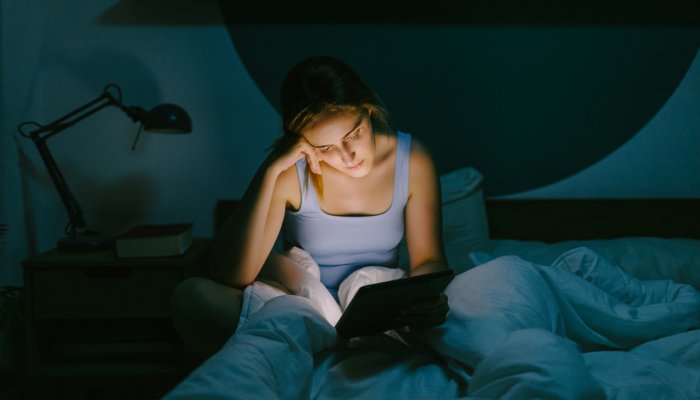3 Tricks To Try When You Can’t Fall Asleep, From A Psychologist + Sleep Expert

Be sure to reserve your bed for sleep or other relaxing activities. If you work from home, try to work in a different space. Even if it’s in the same room, opt for a desk and chair rather than sitting in your bed.
And if you begin to feel restless in bed when you’re trying to fall asleep, get up and do something else, Prather says. “Maybe it’s reading, maybe it’s watching television, whatever it is,” he notes. (For light-emitting activities, consider these blue light shades.) “Find things that facilitate relaxation for you.” This change of scenery may be just what you need.
During your daily wind-down routine, you may also find it helpful to take a sleep supplement. Look for a product that’s melatonin-free, especially if you plan on taking it regularly. This is because there is limited evidence1 that melatonin improves sleep quality on an ongoing basis, and it’s not marketed as a nightly supplement in most countries outside the U.S. and Canada.
Instead, look for ingredients like magnesium, an essential mineral that promotes relaxation, the jujube botanical used in traditional Chinese medicine for its calming effects, and PharmaGABA®, a widely studied amino acid neurotransmitter that is clinically shown to support sleep quality.* Here’s a list of nine A+ options, if you’re in the market for a new natural sleep aid.
